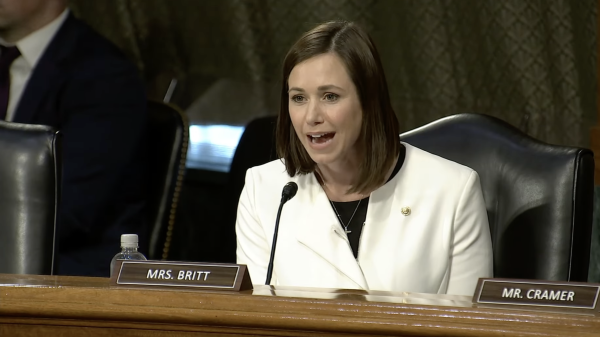Wednesday the House Homeland Security Committee advanced four bills that are a part of committee Republicans’ American Security Agenda.
These bipartisan bills include: Border Security Subcommittee Ranking Member Clay Higgins’ (R-Louisiana) H.R. 4761, the DHS Opioid Detection Resilience Act of 2019, Transportation Subcommittee Ranking Member Debbie Lesko’s (R-Arizona) H.R. 4402, the Inland Waters Security Review Act, Oversight Subcommittee Ranking Member Dan Crenshaw’s (R-Texas) H.R. 4753, the Drone Origin Security Enhancement Act, and Rep. John Ratcliffe’s (R-Texas) H.R. 4237, the Advancing Cybersecurity Diagnostics and Mitigation Act.
Congressman Mike Rogers (R-Saks) is the Ranking Republican on the House Homeland Security Committee.
“These four bills will help keep Americans safe in different ways, whether stopping fentanyl and synthetic opioids, identifying threats to our inland waterways, mitigating risks of foreign-made drones, or mitigating cyberthreats,” said Rogers. “DHS must be ready and able to stay one step ahead of new and emerging threats to the homeland. Reps. Higgins, Lesko, Crenshaw, and Ratcliffe are leading the way by introducing and advocating for these bills.”
“The DHS Opioid Detection Resilience Act helps CBP law enforcement officers better detect and stop the illegal flow of fentanyl and other synthetic opioids,” Higgins said. “Improved detection capability will help law enforcement carry out their mission and keep drugs out of our communities. This is a bipartisan bill, and I’m hopeful that it will pass quickly through the House.”
“Maritime security is a critical component of our Nation’s homeland security,” Lesko said. “We must consider our inland waterways as we conduct thorough security and threat assessments related to maritime security. I am grateful for all of my colleagues’ support today as we work to protect our nation’s inland waters in a bipartisan manner.”
“We’re seeing the impact drones have on foreign relations play out in real time,” Crenshaw said. “This technology continues to pioneer a new frontier, but we cannot ignore the threats it poses to the homeland. Our bill ensures American drone technology will be free from Chinese influence, which is crucial because it’s been demonstrated time after time that we cannot trust Chinese technology in sensitive national security hardware.”
“CDM has proven to be an indispensable tool for DHS to leverage in identifying, responding to and preventing cyber-attacks against our federal networks,” Ratcliffe said. “I’m grateful my bipartisan legislation to make CDM permanent and expand its capabilities to additional agencies at the federal, state and local level was approved by the House Homeland Security Committee today. With the escalating cybersecurity threats we face as a country, I’m hopeful this bill will be brought up for a vote before he full House of Representatives as soon as possible.”
The committee also advanced Rep. Scott Perry’s (R-Pa.) H.R. 3787, the DHS Counter Unmanned Aerial Systems Coordinator Act.
The American Security Agenda is a comprehensive legislative effort from Homeland Security Republicans to combat new and evolving threats to our homeland. The agenda is grounded on three pillars: granting DHS the authority it needs to stay ahead of emerging threats; providing DHS and its state, local, and private sector partners with the resources they need to build and maintain a robust capacity to deter acts of terrorism; and reforming DHS structure and management to ensure it properly positioned to combat the constantly evolving threat to the homeland.
Mike Rogers is in his ninth term representing Alabama’s Third Congressional District.
The bills will now be considered by the full House of Representatives.





















































